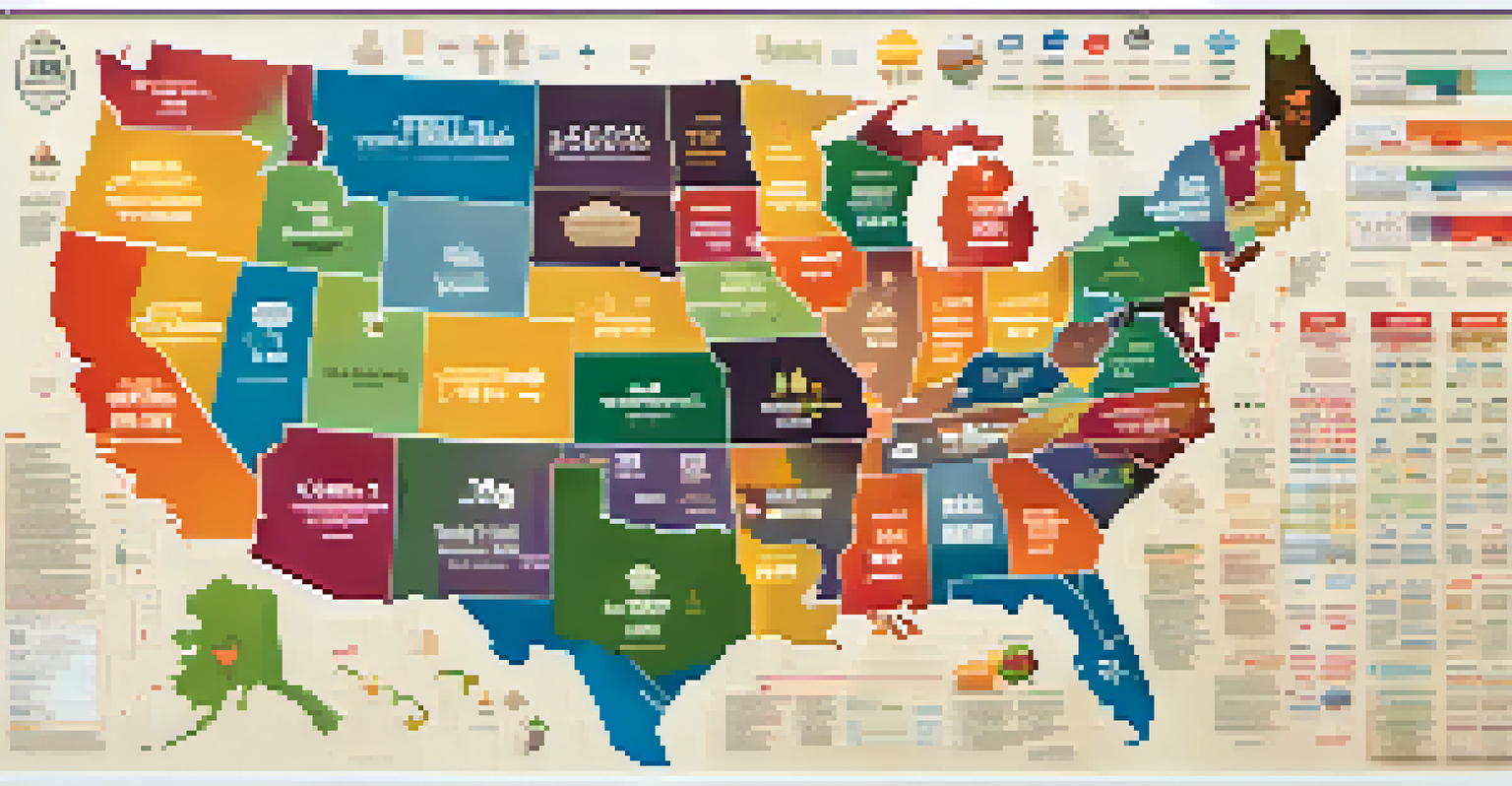Introduction to Sales Tax: What Every Business Should Know

What is Sales Tax and Why Does It Matter?
Sales tax is a consumption tax imposed by the government on the sale of goods and services. It’s typically calculated as a percentage of the sale price and collected by the seller at the point of transaction. This tax is crucial because it generates revenue for state and local governments, funding essential services like education and infrastructure.
In this world, nothing can be said to be certain, except death and taxes.
For businesses, understanding sales tax is vital to compliance and financial management. Failure to collect or remit sales tax can result in penalties, interest, and even audits. Therefore, knowing the basics not only helps avoid legal trouble but also builds a trustworthy relationship with customers who expect transparent pricing.
In essence, sales tax is both a legal obligation and a component of customer experience. Businesses that effectively navigate these waters can enhance their credibility and ensure smoother operations, making it essential knowledge for every entrepreneur.
How Sales Tax Rates Are Determined
Sales tax rates can vary widely depending on location, as they are set by state and local governments. Each state has its own base rate, and cities or counties may add additional taxes on top of that. This can lead to a patchwork of rates, which can be confusing for businesses operating in multiple jurisdictions.

For example, a business in California might charge a different rate than one in Texas due to the differing state laws. This variability means that companies must stay informed about the rates applicable to their specific locations and any changes that may occur. Regularly checking government websites or using sales tax software can help businesses stay compliant.
Sales Tax Basics Are Essential
Understanding sales tax is crucial for compliance and financial management for businesses.
Additionally, some goods and services may be exempt from sales tax or taxed at reduced rates, adding another layer of complexity. Understanding these nuances is key for businesses to ensure they are charging the correct amount and avoiding costly errors.
Sales Tax Nexus: What It Means for Your Business
Nexus refers to the connection a business has to a state that determines whether it must collect sales tax there. Traditionally, this connection was established through physical presence, such as a store or warehouse. However, with the rise of online shopping, states have broadened their definitions of nexus.
The hardest thing in the world to understand is the income tax.
For instance, if a business sells products online and ships to customers in another state, it may create nexus in that state. This means the business is required to collect and remit sales tax for those transactions. Understanding where your business has nexus is crucial to staying compliant and avoiding fines.
With varying laws across states, it’s important for businesses to conduct regular nexus assessments. This proactive approach can help identify new obligations and ensure that sales tax is being handled correctly, allowing businesses to focus on growth without the looming fear of legal repercussions.
Exemptions and Special Cases in Sales Tax
Not all transactions are subject to sales tax; certain exemptions apply depending on the products or services sold. For example, many states exempt food, prescription medications, and certain types of services from sales tax. Understanding these exemptions can be beneficial for businesses to avoid unnecessary tax collection.
Additionally, some customers, like nonprofits or government entities, may qualify for tax-exempt purchases. In such cases, businesses must obtain the appropriate documentation to support these exemptions. This not only ensures compliance but also builds positive relationships with these organizations.
Nexus Impacts Tax Collection
The concept of nexus determines a business's obligation to collect sales tax in various states.
Keeping detailed records of exempt transactions is essential for audit purposes. By being informed about what qualifies for exemption, businesses can streamline their processes and maintain compliance while avoiding potential pitfalls.
The Importance of Accurate Sales Tax Reporting
Accurate sales tax reporting is critical for maintaining compliance and avoiding audits. Businesses must keep meticulous records of sales transactions, including the amount of sales tax collected. This data is essential when it comes time to file sales tax returns and remit collected taxes to the state.
Failing to report sales tax correctly can lead to penalties and interest charges, which can quickly add up. Furthermore, consistent errors can trigger audits, putting additional strain on business resources. To mitigate these risks, businesses should invest in reliable accounting software that tracks sales tax automatically.
Regularly reviewing sales tax reports and reconciling them with sales records also helps ensure accuracy. By staying organized and proactive, businesses can avoid the headaches associated with sales tax compliance.
The Role of Technology in Managing Sales Tax
In today's digital age, technology plays a significant role in simplifying sales tax management. Automated sales tax solutions can help businesses calculate, collect, and report sales tax accurately across different jurisdictions. This not only saves time but also reduces the chance of human error.
For instance, cloud-based software can be integrated with e-commerce platforms to automatically apply the correct sales tax rates at checkout. This seamless integration enhances the customer experience by providing transparency in pricing. Additionally, it allows businesses to focus on growth rather than getting bogged down in tax details.
Technology Eases Tax Management
Automated solutions can simplify the calculation and reporting of sales tax, reducing errors and saving time.
Moreover, many of these solutions keep track of changes in tax laws, ensuring that businesses remain compliant even as regulations evolve. By leveraging technology, businesses can streamline their sales tax processes and minimize their compliance burden.
Preparing for a Sales Tax Audit
A sales tax audit can be a daunting experience for any business, but being prepared can make the process smoother. Audits typically occur when there are discrepancies in reported sales tax or when a business is randomly selected for review. Having organized and accurate records is essential for a successful audit.
Businesses should maintain documentation of all sales transactions, exemptions, and tax remittances. This includes receipts, invoices, and any relevant correspondence with tax authorities. Being meticulous in record-keeping will help demonstrate compliance and reduce stress during an audit.

Finally, consider consulting with a tax professional who specializes in sales tax to guide you through the audit process. Their expertise can provide peace of mind and ensure that you respond to any inquiries appropriately, safeguarding your business’s interests.
Conclusion: The Bottom Line on Sales Tax
Understanding sales tax is crucial for businesses of all sizes. From knowing what rates to charge to keeping accurate records, every aspect of sales tax management can impact your bottom line. By prioritizing sales tax knowledge, businesses can avoid legal pitfalls and foster trust with their customers.
As tax laws continue to evolve, staying informed is more important than ever. Regularly reviewing your sales tax practices, leveraging technology, and maintaining accurate records will position your business for success. Remember, informed decisions today can save you from costly mistakes tomorrow.
In conclusion, sales tax is not just a bureaucratic obligation; it’s an integral part of running a successful business. Embrace the learning curve, and you’ll find that navigating sales tax can be manageable and even beneficial in the long run.